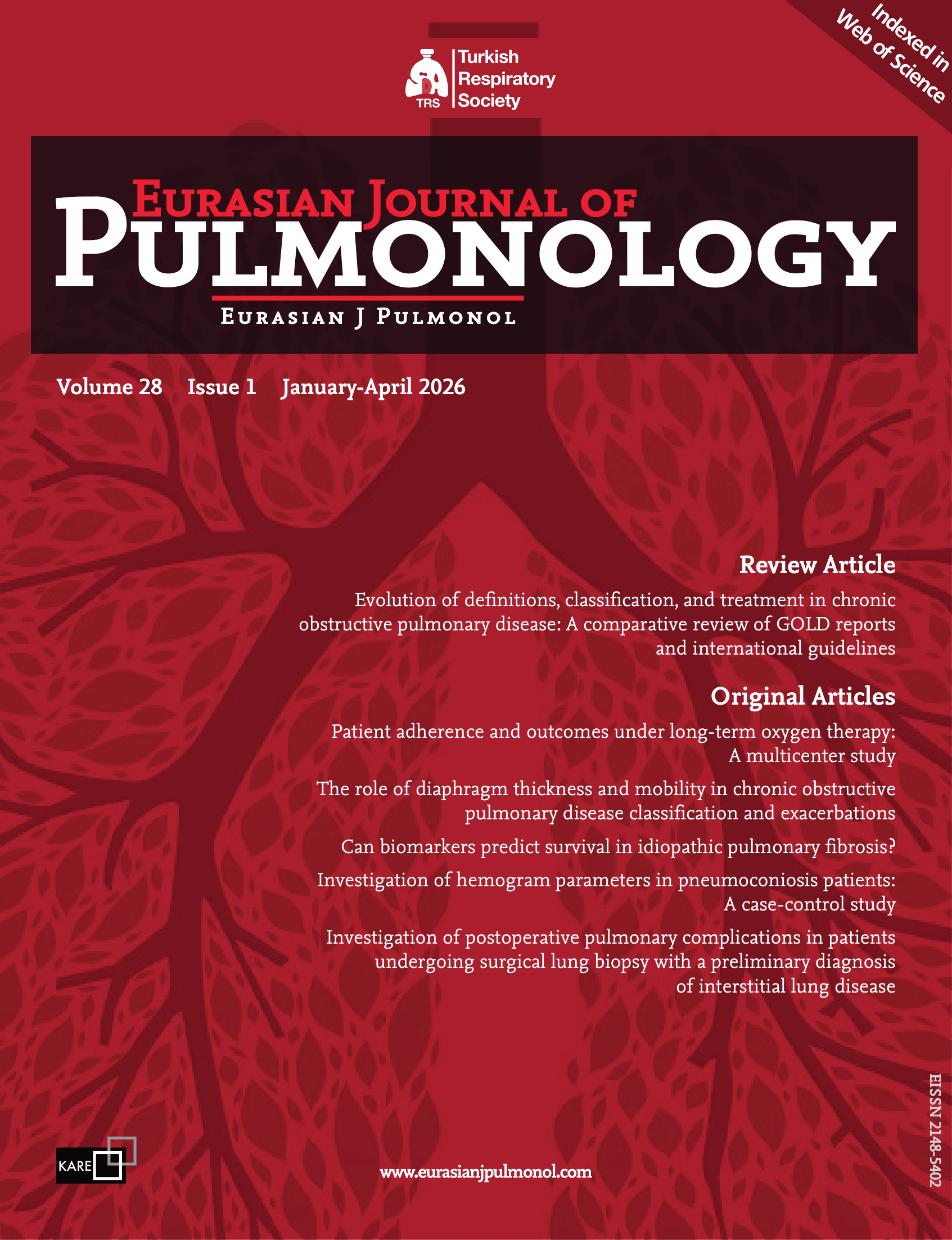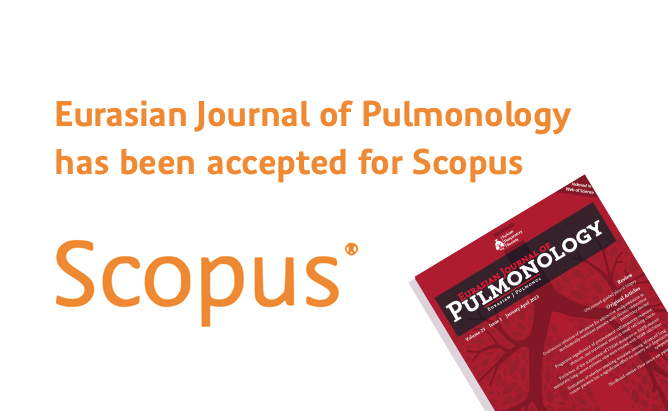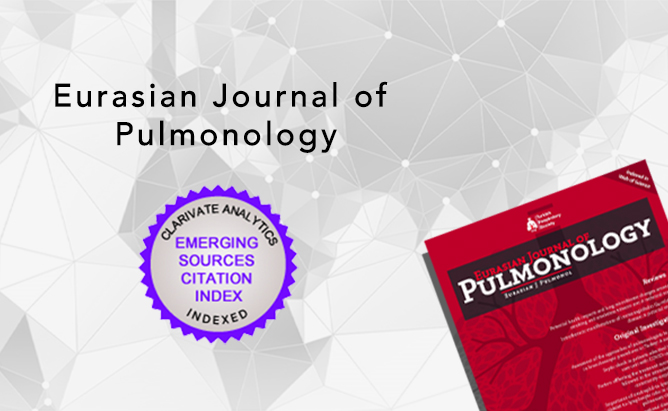2Department of Pulmonary Rehabilitation, Yedikule Chest Diseases and Thoracic Surgery Training and Research Hospital, University of Health Sciences, Istanbul, Turkey
3Department of Chest Diseases, Memorial Şişli Hospital, Istanbul, Turkey
Abstract
CONTEXT: Although pulmonary rehabilitation (PR) has become a preoperative standard practice, the fact that studies do not include groups of patients who do not receive preoperative PR restricts to introduce the real benefit of the rehabilitation process in lung transplantation (LTx). AIMS: We aimed to investigate the effect of preoperative PR before LTx on postoperative period.
SETTINGS AND DESIGN: Retrospective, parallel design. SUBJECTS AND
METHODS: Between March 2012 and October 2014, medical records of patients who underwent LTx were analyzed. There were two parallel groups. (1) Study group (n = 15) included the patients with received preoperative PR for at least 8 weeks. (2) Control group (n = 12) included the patients with underwent LTx without preoperative PR as appropriate donor was found. Time to intubation, length of intensive care unit (ICU) stay, and postoperative early mortality were evaluated.
STATISTICAL ANALYSIS USED: Shapiro–Wilk, Fisher' exact test, Mann–Whitney U-test, Wilcoxon rank test.
RESULTS: A total of 27 patients with LTx surgery, whose mean age was 40.6 (11.4) and 40% of females were included in the study. There were no significant differences in demographic characteristics between two groups, except the age (P = 0.005). The study group intubation time (2 [0–7] days) was shorter than control group (3 [1–12] days) (P = 0.02). There was no significant difference in the length of ICU stay postoperatively (P = 0.19) and postoperative early mortality rate (P = 0.65).
CONCLUSIONS: Our study results suggest that preoperative PR may shorten time to intubation in patients undergoing LTx. Therefore, referral of LTx to PR centers and preoperative PR is of utmost importance for postoperative LTx.




 Esra Pehlivan1
Esra Pehlivan1 




